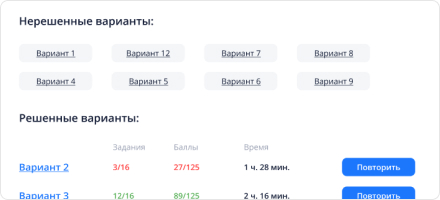According to the narrator scientists believe that
1) plants in the rainforest do not need so much water.
2) it’s impossible to control the animals and birds in the forest.
3) they should study animals without catching them.
4) there is a number of unknown types of animals in the rainforest.
I arrived at the cloud forest in Ecuador ten days ago. I was one of a group of twelve volunteers that wanted to save the rainforest. My reasons for going on this trip were twofold: firstly, I wanted to collect and bring back alive some of the fascinating animals, birds and reptiles that inhabit this region; secondly, I had long cherished a dream to see South America: not the inhabited South America with its macadam roads, its cocktail bars, its express trains roaring through a landscape denuded of its flora and fauna by the beneficial influences of civilization. I wanted to see one of those few remaining parts of the continent that had escaped this fate and remained more or less as it was when America was first discovered: I wanted to see its rainforests, its vast lands of untouched, pure, natural wildlife. We were working together with local people and scientists and we were learning and seeing new things every day. Our lodge was comfortable, had breathtaking views and was in the middle of the rainforest. It was a two-hour walk from the nearest road, and it was even further to the nearest village.
The rainforest is truly an astonishing place. There are thousands of species of plants here and more than 700 species of birds. There are millions of insects and scientists think there may be around forty mammal species that haven’t even been discovered. But what I was really amazed at how everything depends on everything else for survival.
Every tree in the rainforest is covered in a species of another kind. The black wasp uses the tarantula as a nest for its eggs, plants need monkeys for seed dispersal, and the clouds are necessary for the survival of the whole rainforest. This is because they provide moisture. The problem is, climate change is causing the clouds to rise by 1—2 meters every year. What will happen to the plants that need this moisture? What will happen to the animals that need those plants?

Our job was to watch this changing ecosystem. One of my favourite projects was the bird survey. Every day a group of us set out at around five o’clock with a local scientist. At this time of the morning the air was filled with the sound of bird song. We had to identify the birds we hear and see and write down our findings. Later, we entered all our information into a computer at the lodge.
We also set up cameras to record pumas, spectacled bears and other large mammals. It was always exciting to see pumas because it meant there were other animals around that they would normally hunt. We fixed the cameras to trees around the reserve, and every day a team of volunteers collected the cameras memory cards.
There was a lot to do in the rainforest, but at least I felt like we were making a difference.
However, soon I started collecting some animals and insects. I realized that as soon as the hunting got under way and the collection increased, most of my time would be taken up in looking after the animals, and I should not be able to wander far from camp. So I was eager to get into the forest while I had the chance.
Nevertheless, I should mention the fact that without the help of the natives you would stand little chance of catching the animals you want, for they know the forest, having been born in it. Once the animal is caught, however, it is your job to keep it alive and well. If you left this part of it to the natives you would get precious little back alive.
Задание №9678.
Чтение. ЕГЭ по английскому
Прочитайте текст и запишите в поле ответа цифру 1, 2, 3 или 4, соответствующую выбранному Вами варианту ответа.
Показать текст. ⇓
According to the narrator scientists believe that
1) there is a number of unknown types of animals in the rainforest.
2) they should study animals without catching them.
3) plants in the rainforest do not need so much water.
4) it’s impossible to control the animals and birds in the forest.
Решение:
According to the narrator scientists believe that there is a number of unknown types of animals in the rainforest.
По словам рассказчика, ученые считают, что в тропических лесах обитает ряд неизвестных видов животных.
«There are millions of insects and scientists think there may be around forty mammal species that haven’t even been discovered.»
Показать ответ
Источник: ФИПИ. Открытый банк тестовых заданий
Сообщить об ошибке
Тест с похожими заданиями
Which reason for the trip to the rainforest was NOT mentioned?
1) Dream of visiting South America.
2) Gathering a collection.
3) Thirst for adventures.
4) Saving rainforests.
I arrived at the cloud forest in Ecuador ten days ago. I was one of a group of twelve volunteers that wanted to save the rainforest. My reasons for going on this trip were twofold: firstly, I wanted to collect and bring back alive some of the fascinating animals, birds and reptiles that inhabit this region; secondly, I had long cherished a dream to see South America: not the inhabited South America with its macadam roads, its cocktail bars, its express trains roaring through a landscape denuded of its flora and fauna by the beneficial influences of civilization. I wanted to see one of those few remaining parts of the continent that had escaped this fate and remained more or less as it was when America was first discovered: I wanted to see its rainforests, its vast lands of untouched, pure, natural wildlife. We were working together with local people and scientists and we were learning and seeing new things every day. Our lodge was comfortable, had breathtaking views and was in the middle of the rainforest. It was a two-hour walk from the nearest road, and it was even further to the nearest village.
The rainforest is truly an astonishing place. There are thousands of species of plants here and more than 700 species of birds. There are millions of insects and scientists think there may be around forty mammal species that haven’t even been discovered. But what I was really amazed at how everything depends on everything else for survival.
Every tree in the rainforest is covered in a species of another kind. The black wasp uses the tarantula as a nest for its eggs, plants need monkeys for seed dispersal, and the clouds are necessary for the survival of the whole rainforest. This is because they provide moisture. The problem is, climate change is causing the clouds to rise by 1—2 meters every year. What will happen to the plants that need this moisture? What will happen to the animals that need those plants?
Our job was to watch this changing ecosystem. One of my favourite projects was the bird survey. Every day a group of us set out at around five o’clock with a local scientist. At this time of the morning the air was filled with the sound of bird song. We had to identify the birds we hear and see and write down our findings. Later, we entered all our information into a computer at the lodge.
We also set up cameras to record pumas, spectacled bears and other large mammals. It was always exciting to see pumas because it meant there were other animals around that they would normally hunt. We fixed the cameras to trees around the reserve, and every day a team of volunteers collected the cameras memory cards.
There was a lot to do in the rainforest, but at least I felt like we were making a difference.
However, soon I started collecting some animals and insects. I realized that as soon as the hunting got under way and the collection increased, most of my time would be taken up in looking after the animals, and I should not be able to wander far from camp. So I was eager to get into the forest while I had the chance.
Nevertheless, I should mention the fact that without the help of the natives you would stand little chance of catching the animals you want, for they know the forest, having been born in it. Once the animal is caught, however, it is your job to keep it alive and well. If you left this part of it to the natives you would get precious little back alive.
В2
Установите
соответствие между заголовками 1-8 и
текстами A—G.
Занесите свои ответы в таблицу.
Используйте каждую цифру только
один раз. В задании один заголовок
лишний.
-
National
language -
Freedom
of media -
Customs
and traditions -
Public
transport
-
Geography
-
Leisure
and sport -
Modern
history -
Economic
outlook
A. Lithuania
is situated on the eastern Baltic coast and borders Latvia in the
north,
the Kaliningrad region of the Russian Federation and
Poland in the southwest, and
Belarus in the southwest and east.
The geometrical centre of Europe lies in eastern
Lithuania 25km
north of its capital Vilnius. The landscape varies between
lowland
plains and hilly uplands and has a complex network of
rivers.
B. Lithuania
has historically been the least developed of the Baltic republics,
with a
smaller industrial base and greater dependence on
agriculture. Sugar beet, cereals,
potatoes and vegetables are
the main crops. Lithuania’s foreign trade has gradually
changed
during the 1990s, and now the European Union, not Russia, is its
main
trading partner.
С
Lithuanian is the mother tongue for 80% of the population. After the
country joined the European Union in 2004 this language has become
one of the EU official languages. Lithuania has a large number of
dialects for such a small territory, including High Lithuanian and
Low Lithuanian.
D. Lithuania
offers different opportunities for a nice vacation. You can explore
a
range of large sand dunes and pine forests while hiking in
the Curonian Spit
National Park, take part in some action
sports in Nida, a village that makes a true
paradise for
sailing, windsurfing, paragliding and kiting, or try out more
extreme
sports, such as hot-air ballooning and gliding.
E. Those
who are interested in folklore may enjoy their stay in Lithuania in
any
season of the year. The Mardi Gras celebrations are held in
various Lithuanian
cities and small towns at the beginning of
February. The Folklore Festival is held
in Vilnius’ Old Town
during in May. There you can see craft fairs, taste
traditional
dishes, join song and parties and listen to psalms.
F. Lithuania’s
TV market is dominated by commercial channels. The radio market
is
similarly competitive. Lithuania’s media are free and
operate independently of the
state, and there are no
government-owned newspapers. However, politicians do
occasionally
attempt to influence editorial policy.
G. In
cities and towns there are buses and trolleybuses, which usually run
from 05.00
to 23.00, but times do vary between routes. You
can’t pay the fare to the driver
in cash but you can buy
coupons from him. Coupons can be also bought at news
kiosks
before boarding. Minibuses are less crowded but more expensive.
©
2012 Федеральный институт педагогических
измерений. © 2012 Национальное образование.
Копирование, распространение и
использование без письменного разрешения
правообладателей не допускается
30
ЕГЭ-2012.
АНГЛИЙСКИЙ
ЯЗЫК:
ТИПОВЫЕ
ЭКЗАМЕНАЦИОННЫЕ
ВАРИАНТЫ
|
Прочитайте |
и |
заполните |
частями |
обозна- |
|||
|
ценными |
-7. |
Одна |
частей |
в |
1-7 |
лишняя. |
цифры, |
|
обозначающие |
части |
предложений, |
в |
Harry
Potter course for university students
Students
of Durham University are being given the chance to sign up to what
is thought to be the UK’s first course focusing on the world of
Harry Potter. Although every English-speaking person in the world
knows about Harry Potter books and films, few have thought of using
them as a guide to … modern life.
The
Durham University module uses the
works of JK Rowling
A
modern society, «Harry Potter and the Age of Illusion»
will
be
available for study next year. So far about 80
undergraduates have signed
В
a BA degree in Education Studies. Future
educationalists
will analyse JK Rowling’s fanfiction from various points of view.
A
university spokesman said: «This module places the Harry Potter
novels in a wider social and cultural context.» He added
that a number of themes would be
explored,
С the
classroom, bullying, friendship and
solidarity
and the ideals of and good citizenship.
The
module was created by the head of the Department of Education at
Durham University. He said the idea for the new
module had appeared in response
D
body: «It seeks to place the series in its wider
social and
cultural
context and will explore some fundamental issues E .
You
just need to read the academic writing which started F
that
Harry Potter is worthy of serious study.»
-
up
for the optional module, part of -
to
emerge four or five years ago to see -
to
examine prejudice, citizenship and bullying in -
such
as the response of the writer -
including
the world of rituals, prejudice and intolerance in -
to
growing demand from the student -
such
as the moral universe of the school
Прочитайте
текст и выполните задания А15-А21.
В
каждом задании обведите цифру 1, 2, 3 или
4, соответствующую выбранному вами
варианту ответа.
I
arrived at the cloud forest in Ecuador ten days ago. I was one of a
group of twelve volunteers that wanted to save the rainforest. My
reasons for going on this trip were twofold: firstly, I wanted to
collect and bring back alive some of the fascinating animals, birds
and reptiles that inhabit this region; secondly, I had long
©
2012
Федеральный институт педагогических
измерений. © 2012 Национальное образование.
Копирование, распространение и
использование без письменного разрешения
правообладателей не допускается
ВАРИАНТ
3
31
cherished
a dream to see South America: not the inhabited South America with
its macadam roads, its cocktail bars, its express trains roaring
through a landscape denuded of its flora and fauna by the beneficial
influences of civilization. I wanted to see one of those few
remaining parts of the continent that had escaped this fate and
remained more or less as it was when America was first discovered: I
wanted to see its rainforests, its vast lands of untouched, pure,
natural wildlife. We were working together with local people and
scientists and we were learning and seeing new things every day. Our
lodge was comfortable, had breathtaking views and was in the middle
of the rainforest. It was a two-hour walk from the nearest road, and
it was even further to the nearest village.
The
rainforest is truly an astonishing place. There are thousands of
species of plants here and more than 700 species of birds. There are
millions of insects and scientists think there may be around forty
mammal species that haven’t even been discovered. But what I was
really amazed at how everything depends on everything else for
survival.
Every
tree in the rainforest is covered in a species of another kind. The
black wasp uses the tarantula as a nest for its eggs, plants need
monkeys for seed dispersal, and the clouds are necessary for the
survival of the whole rainforest. This is because they provide
moisture. The problem is, climate change is causing the clouds to
rise by 1—2 meters every year. What will happen to the plants that
need this moisture? What will happen to the animals that need those
plants?
Our
job was to watch this changing ecosystem. One of my favourite
projects was the bird survey. Every day a group of us set out at
around five o’clock with a local scientist. At this time of the
morning the air was filled with the sound of bird song. We had to
identify the birds we hear and see and write down our findings.
Later, we entered all our information into a computer at the lodge.
We
also set up cameras to record pumas, spectacled bears and other
large mammals. It was always exciting to see pumas because it meant
there were other animals around that they would normally hunt. We
fixed the cameras to trees around the reserve, and every day a team
of volunteers collected the cameras memory cards.
There
was a lot to do in the rainforest, but at least I felt like we were
making a difference.
However,
soon I started collecting some animals and insects. I realized that
as soon as the hunting got under way and the collection increased,
most of my time would be taken up in looking after the animals, and
I should not be able to wander far from camp. So I was eager to get
into the forest while I had the chance.
Nevertheless,
I should mention the fact that without the help of the natives you
would stand little chance of catching the animals you want, for they
know the forest, having been born in it. Once the animal is caught,
however, it is your job to keep it alive and well. If you left this
part of it to the natives you would get precious little back alive.
A15
Which reason for the trip to the rainforest was NOT mentioned?
-
Dream
of visiting South America. -
Gathering
a collection. -
Thirst
for adventures. -
Saving
rainforests.
©
2012 Федеральный институт педагогических
измерений. © 2012 Национальное образование.
Копирование, распространение и
использование без письменного разрешения
правообладателей не допускается
32
ЕГЭ-2012.
АНГЛИЙСКИЙ
ЯЗЫК:
ТИПОВЫЕ
ЭКЗАМЕНАЦИОННЫЕ
ВАРИАНТЫ
А16
Who
did NOT take part in the work in rainforests?
-
Zoo
keepers. -
Researchers.
-
Volunteers.
-
People
living in the area.
А17
According
to the narrator scientists believe that
-
plants
in the rainforest do not need so much water. -
it’s
impossible to control the animals and birds in the forest. -
they
should study animals without catching them. -
there
is a number of unknown types of animals in the rainforest.
А18
What
type of work did the volunteers have to do?
-
Study
the birds’ singing. -
Search
for pumas and bears. -
Observe
the changes in the wildlife. -
List
the types of plants in the rainforest.
А19
The
phrase «we were making difference» in paragraph 6 means
-
they
were improving fauna of the rainforest. -
they
were changing the ecosystem of the place. -
they
made life in the forest more diverse. -
their
job would help in saving the forest.
A20
Why did the narrator go to the forest any time he had a chance
to?
А21
-
He
liked hunting with local people. -
He
didn’t have chance to do any other work. -
He
wouldn’t have enough time for that later. -
He
had to feed animals that he had caught.
According
to the narrator he worked with local people because they
-
protected
the animals. -
were
familiar with the place. -
saved
his life. -
knew
animals better.
По
окончании выполнения заданий В2, ВЗ и
А15-А21 НЕ ЗАБУДЬТЕ ПЕРЕНЕСТИ СВОИ
ОТВЕТЫ В
БЛАНК ОТВЕТОВ №
1!
ОБРАТИТЕ
ВНИМАНИЕ, что ответы на задания В2, ВЗ,
А15-А21 располагаются в разных частях
бланка.
©
20.12
Федеральный институт педагогических
измерений. © 2012 Национальное образование.
Копирование, распространение и
использование без письменного разрешения
правообладателей не допускается
ВАРИАНТ
3
33
I arrived at the cloud forest in Ecuador ten days ago. I was one of a group of twelve volunteers that wanted to save the rainforest. My reasons for going on this trip were twofold: firstly, I wanted to collect and bring back alive some of the fascinating animals, birds and reptiles that inhabit this region; secondly, I had long cherished a dream to see South America: not the inhabited South America with its macadam roads, its cocktail bars, its express trains roaring through a landscape denuded of its flora and fauna by the beneficial influences of civilization. I wanted to see one of those few remaining parts of the continent that had escaped this fate and remained more or less as it was when America was first discovered: I wanted to see its rainforests, its vast lands of untouched, pure, natural wildlife. We were working together with local people and scientists and we were learning and seeing new things every day. Our lodge was comfortable, had breathtaking views and was in the middle of the rainforest. It was a two-hour walk from the nearest road, and it was even further to the nearest village.
The rainforest is truly an astonishing place. There are thousands of species of plants here and more than 700 species of birds. There are millions of insects and scientists think there may be around forty mammal species that haven’t even been discovered. But what I was really amazed at how everything depends on everything else for survival.
Every tree in the rainforest is covered in a species of another kind. The black wasp uses the tarantula as a nest for its eggs, plants need monkeys for seed dispersal, and the clouds are necessary for the survival of the whole rainforest. This is because they provide moisture. The problem is, climate change is causing the clouds to rise by 1—2 meters every year. What will happen to the plants that need this moisture? What will happen to the animals that need those plants?
Our job was to watch this changing ecosystem. One of my favourite projects was the bird survey. Every day a group of us set out at around five o’clock with a local scientist. At this time of the morning the air was filled with the sound of bird song. We had to identify the birds we hear and see and write down our findings. Later, we entered all our information into a computer at the lodge.
We also set up cameras to record pumas, spectacled bears and other large mammals. It was always exciting to see pumas because it meant there were other animals around that they would normally hunt. We fixed the cameras to trees around the reserve, and every day a team of volunteers collected the cameras memory cards.
There was a lot to do in the rainforest, but at least I felt like we were making a difference.
However, soon I started collecting some animals and insects. I realized that as soon as the hunting got under way and the collection increased, most of my time would be taken up in looking after the animals, and I should not be able to wander far from camp. So I was eager to get into the forest while I had the chance.
Nevertheless, I should mention the fact that without the help of the natives you would stand little chance of catching the animals you want, for they know the forest, having been born in it. Once the animal is caught, however, it is your job to keep it alive and well. If you left this part of it to the natives you would get precious little back alive.
ВОПРОС 1: Which reason for the trip to the rainforest was NOT mentioned?
1) Dream of visiting South America.
2) Gathering a collection.
3) Thirst for adventures.
4) Saving rainforests.
ВОПРОС 2: Who did NOT take part in the work in rainforests?
1) Zoo keepers.
2) Researchers.
3) Volunteers.
4) People living in the area.
ВОПРОС 3: According to the narrator scientists believe that
1) plants in the rainforest do not need so much water.
2) it’s impossible to control the animals and birds in the forest.
3) they should study animals without catching them.
4) there is a number of unknown types of animals in the rainforest.
ВОПРОС 4: What type of work did the volunteers have to do?
1) Study the birds’ singing.
2) Search for pumas and bears.
3) Observe the changes in the wildlife.
4) List the types of plants in the rainforest.
ВОПРОС 5: The phrase “we were making difference” in paragraph 6 means
1) they were improving fauna of the rainforest.
2) they were changing the ecosystem of the place.
3) they made life in the forest more diverse.
4) their job would help in saving the forest.
ВОПРОС 6: Why did the narrator go to the forest any time he had a chance to?
1) He liked hunting with local people.
2) He didn’t have chance to do any other work.
3) He wouldn’t have enough time for that later.
4) He had to feed animals that he had caught.
ВОПРОС 7: According to the narrator he worked with local people because they
1) protected the animals.
2) were familiar with the place.
3) saved his life.
4) knew animals better.
ВОПРОС 1: – 3
ВОПРОС 2: – 1
ВОПРОС 3: – 4
ВОПРОС 4: – 3
ВОПРОС 5: – 4
ВОПРОС 6: – 3
ВОПРОС 7: – 2
Установите соответствие тем 1 — 7 текстам A — F. Занесите свои ответы в соответствующее поле справа. Используйте каждую цифру только один раз. В задании одна тема лишняя.
Harry Potter course for university students
- 1. up for the optional module, part of
- 2. to emerge four or five years ago to see
- 3. to examine prejudice, citizenship and bullying in
- 4. such as the response of the writer
- 5. including the world of rituals, prejudice and intolerance in
- 6. to growing demand from the student
- 7. such as the moral universe of the school
Students of Durham University are being given the chance to sign up to what is thought to be the UK’s first course focusing on the world of Harry Potter. Although every English-speaking person in the world knows about Harry Potter books and films, few have thought of using them as a guide to … modern life. The Durham University module uses the works of JK Rowling A ___ modern society.
«Harry Potter and the Age of Illusion» will be available for study next year. So far about 80 undergraduates have signed В ___ a BA degree in Education Studies. Future educationalists will analyse JK Rowling’s fanfiction from various points of view. A university spokesman said: «This module places the Harry Potter novels in a wider social and cultural context.» He added that a number of themes would be explored, C ___ the classroom, bullying, friendship and solidarity and the ideals of and good citizenship.
The module was created by the head of the Department of Education at Durham University. He said the idea for the new module had appeared in response D ___ body: «It seeks to place the series in its wider social and cultural context and will explore some fundamental issues E ___ . You just need to read the academic writing which started F ___ that Harry Potter is worthy of serious study.»
| A | B | C | D | E | F |
Прочитайте текст и выполните задания А15—А21, обводя цифру 1, 2, 3 или 4, соответствующую номеру выбранного вами варианта ответа.
I arrived at the cloud forest in Ecuador ten days ago. I was one of a group of twelve volunteers that wanted to save the rainforest. My reasons for going on this trip were twofold: firstly, I wanted to collect and bring back alive some of the fascinating animals, birds and reptiles that inhabit this region; secondly, I had long cherished a dream to see South America: not the inhabited South America with its macadam roads, its cocktail bars, its express trains roaring through a landscape denuded of its flora and fauna by the beneficial influences of civilization. I wanted to see one of those few remaining parts of the continent that had escaped this fate and remained more or less as it was when America was first discovered: I wanted to see its rainforests, its vast lands of untouched, pure, natural wildlife. We were working together with local people and scientists and we were learning and seeing new things every day. Our lodge was comfortable, had breathtaking views and was in the middle of the rainforest. It was a two-hour walk from the nearest road, and it was even further to the nearest village.
The rainforest is truly an astonishing place. There are thousands of species of plants here and more than 700 species of birds. There are millions of insects and scientists think there may be around forty mammal species that haven’t even been discovered. But what I was really amazed at how everything depends on everything else for survival.
Every tree in the rainforest is covered in a species of another kind. The black wasp uses the tarantula as a nest for its eggs, plants need monkeys for seed dispersal, and the clouds are necessary for the survival of the whole rainforest. This is because they provide moisture. The problem is, climate change is causing the clouds to rise by 1—2 meters every year. What will happen to the plants that need this moisture? What will happen to the animals that need those plants?
Our job was to watch this changing ecosystem. One of my favourite projects was the bird survey. Every day a group of us set out at around five o’clock with a local scientist. At this time of the morning the air was filled with the sound of bird song. We had to identify the birds we hear and see and write down our findings. Later, we entered all our information into a computer at the lodge.
We also set up cameras to record pumas, spectacled bears and other large mammals. It was always exciting to see pumas because it meant there were other animals around that they would normally hunt. We fixed the cameras to trees around the reserve, and every day a team of volunteers collected the cameras memory cards.
There was a lot to do in the rainforest, but at least I felt like we were making a difference.
However, soon I started collecting some animals and insects. I realized that as soon as the hunting got under way and the collection increased, most of my time would be taken up in looking after the animals, and I should not be able to wander far from camp. So I was eager to get into the forest while I had the chance.
Nevertheless, I should mention the fact that without the help of the natives you would stand little chance of catching the animals you want, for they know the forest, having been born in it. Once the animal is caught, however, it is your job to keep it alive and well. If you left this part of it to the natives you would get precious little back alive.
- Главная
-
Английский язык
-
Лексико-грамматический блок
-
Грамматика и лексика 19-25
3. Лексико-грамматический блок
Формат ответа: цифра или несколько цифр, слово или несколько слов. Вопросы на соответствие «буква» — «цифра» должны записываться как несколько цифр. Между словами и цифрами не должно быть пробелов или других знаков.
Примеры ответов: 7 или здесьисейчас или 3514
Раскрыть
Скрыть
Прочитайте приведённый ниже текст. Преобразуйте, если необходимо, слова, напечатанные заглавными буквами в конце строк, обозначенных номерами 19–25, так, чтобы они грамматически соответствовали содержанию текстов. Заполните пропуски полученными словами. Каждый пропуск соответствует отдельному заданию из группы 19–25.
Meeting a Stranger
I was coming home at about three o’clock on a black winter night, when suddenly I saw two people. The 19_______(ONE) was a short man who 20_______(WALK) along the street and the 21_______(TWO) was a little girl who second 22_______(RUN) as fast as she could. Well, the two crashed into each other and the child 23_______(FALL) down. But the man calmly walked on and left the 24_______(CRY) child on the ground. I ran after the man and brought 25_______(HE) back. There was already a small crowd around the child.
Прочитайте приведенный ниже текст. Преобразуйте, если необходимо, слова, напечатанные заглавными буквами в конце строк, обозначенных номерами 19-25, так чтобы они грамматически соответствовали содержанию текста. Заполните пропуски полученными словами. Каждый пропуск соответствует отдельному заданию из 19-25.
Confusion Helps Us Learn
When we 19_______(CONFUSE) by something — say with a movie plot or calculus — we tend to feel uncomfortable, frustrated. But maybe we should embrace the confusion. Because a new study 20_______(FIND) that confusion can lead to better learning. Scientists set up a situation where they purposely confused subjects during a pretend learning session. Subjects who 21_______(FORCE) to deal with the incorrect and contradictory statements did significantly 22_______(GOOD) on later tests where they should find mistakes in studies. 23_______(RESEARCHER) note that confusion motivates us to work harder to understand, and so we gain a 24_______(DEEP) and 25_______(COMPREHENSIVE) knowledge of a subject.
Прочитайте приведённый ниже текст. Преобразуйте, если необходимо, слова, напечатанные заглавными буквами в конце строк, обозначенных номерами 19-25, так чтобы они грамматически и лексически соответствовали содержанию текста. Заполните пропуски полученными словами. Каждый пропуск соответствует отдельному заданию из группы 19-25.
St Olave’s in Orpington is an intensely competitive grammar school, with stellar exam results and a long queue of applicants 19_______(TRY) to get through the entrance exams. But it’s now at the centre of a row about whether it is playing fair. And it has highlighted a question relevant to many other state schools. A group of parents at the school 20_______(CHALLENGE) a decision not to let some pupils progress from lower sixth into the 21_______(UP) sixth, because they are not on target to get good enough A-level results. What makes this different is that the parents are trying to launch a legal challenge. This is still at an early stage. But the parents’ lawyers are claiming that stopping pupils moving from lower 22_______(SIX) is in effect a permanent exclusion.
Is it exclusion?
Pupils can 23_______(EXCLUDE) for bad behaviour or bad attendance, but not for moderate results in exams. As such, the parents’ lawyers argue that 24_______(THIS) are unlawful exclusions, and they are calling on the courts to order a reversal. The only thing that parents want to get is the fair assessment system for 25_______(THEY) children.
Прочитайте приведённый ниже текст. Преобразуйте, если необходимо, слово, напечатанное заглавными буквами, после номеров 19-25, так, чтобы оно грамматически и лексически соответствовало содержанию текста. Заполните пропуски полученными словами. Каждый пропуск соответствует отдельному заданию из группы 19-25.
I 19_______(ARRIVE) at the cloud forest in Ecuador ten days ago. I was one of a group of twelve volunteers that wanted to save the rainforest. My reasons for going on this trip were twofold: firstly, I wanted to collect and bring back alive some of the animals, birds and reptiles I 20_______(FASCINATE) with; secondly, I had long cherished a dream to see South America: not the inhabited South America with its macadam roads, its cocktail bars, its express trains roaring through a landscape denuded of its flora and fauna that 21_______(BENEFIT) from the influences of civilization. I wanted to see one of those few 22_______(REMAIN) parts of the continent that had escaped this fate and remained more or less as it was when America was first discovered: I wanted to see its rainforests, its vast lands of untouched, pure, natural wildlife. We 23_______(WORK) together with local people and scientists and we were learning and seeing new things every day. Our lodge was the 24_______(GOOD) in that place, had breathtaking views and was in the middle of the rainforest.
It was a two-hour walk from the 25_______(NEAR) road, and it was even further to the nearest village.
Пора зарегистрироваться!
Так твой прогресс будет сохраняться.
Регистрация












Начало работы
Привет сейчас ты за 5 шагов узнаешь, как пользоваться платформой
Смотреть
Выбери тест
«Выбери тест, предмет и нажми кнопку «Начать решать»
1 / 6
Вкладки
После выбора предмета необходимо выбрать на вкладке задания, варианты ЕГЭ, ОГЭ или другого теста, или теорию
2 / 6
Задания
Решай задания и записывай ответы. После 1-ой попытки
ты сможешь посмотреть решение
3 / 6
Статистика
Сбоку ты можешь посмотреть статистику и прогресс по предмету
4 / 6
Решение
Нажми, чтобы начать решать вариант. Как только ты перейдешь
на страницу, запустится счетчик времени, поэтому подготовь заранее все, что может тебе понадобиться
5 / 6
Отметки
Отмечай те статьи, что прочитал, чтобы было удобнее ориентироваться в оглавлении
6 / 6
Молодец!
Ты прошел обучение! Теперь ты знаешь как пользоваться сайтом
и можешь переходить к решению заданий









